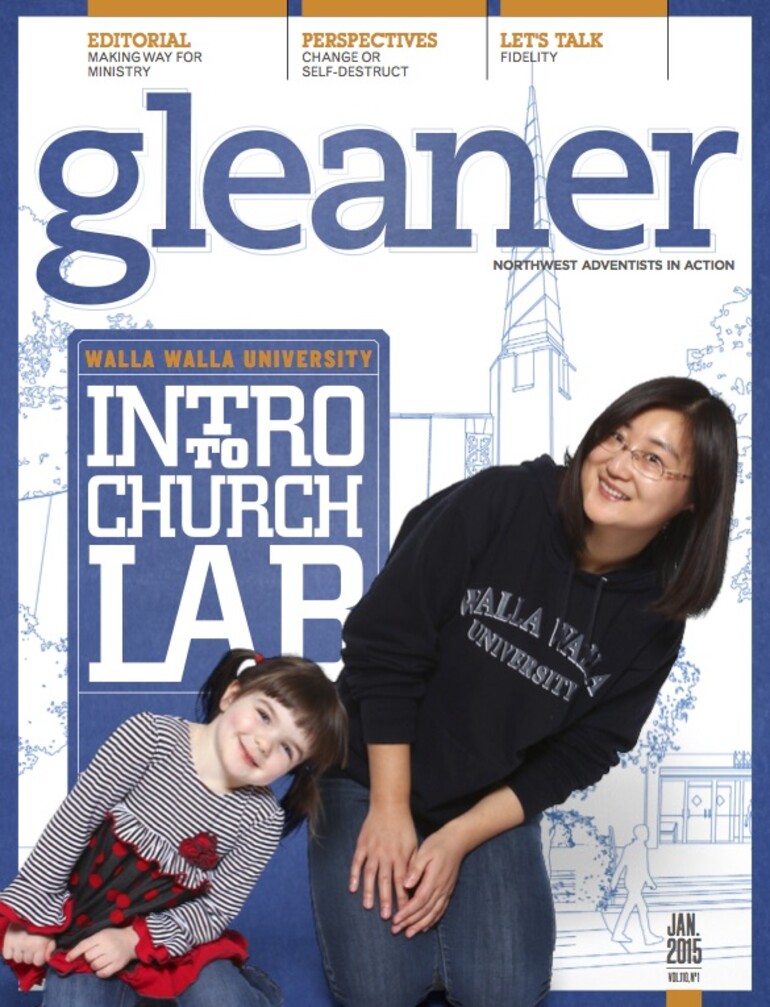If the rate of change inside an organization is less than the rate of change outside, the end is in sight. The only question is when.1
“Friday Night Chill,” they called it. Young adults crowded into someone’s home each week to welcome the Sabbath. Smartphones equipped their living room Bible study. In the kitchen, half a dozen snacked on popcorn and fruit while sharing joys and frustrations of the past week. A discussion video drew an audience into the family room. The basement rec room hosted an impromptu praise jam with guitars and keyboard mingling with the mellow rhythm of a conga.
The house reverberated with music, laughter and Christian conversation as young adult members and their non-Adventist guests moved from room to room, participating everywhere. There were Sabbath-friendly activities for everyone.
Except the pastor. He didn’t like Friday Night Chill and put a stop to it.
Conscientiously and kindly, he quenched the Spirit that inspired his young adult congregants. Morale melted, and some of them left the church — including the young theology student whose leadership the pastor had so tactfully trashed. Perceiving that the church didn’t want his innovative ministry, he connected with an evangelical congregation where young adults are encouraged to express their own faith — not merely reflect their elders’ expectations or experiences.
That young man and his friends who abandoned the Seventh-day Adventist Church didn’t leave by themselves. Adventists in North America are losing most of our young adults. That’s the bad news. The good news is we don’t have to watch them go. They can be persuaded to stay with the church.
If we want to change, that is.
Change can be scary, I’m finding (increasingly as I get older). But the alternative is worse. "Change or die" is the stark choice we all make, individually and collectively as a church.
The God we claim to obey believes in change. “Behold, I am doing a new thing,” He says, “now it springs forth, do you not perceive it?” (Is. 43:19, ESV).
Pseudo-conservatism refuses growth with the same mindset of the old-wineskin Pharisees, whose reaction to every new concept was, “The old is better” (Luke 5:39, NKJV).
Do you belong to a church that thinks the old way of doing things is automatically better than fresh and creative expressions of congregational life and outreach?
Many Adventist churches with a century of rich spiritual heritage cling to the past so fervently that they become hospices instead of maternity wards. Such congregations are incapable of connecting with their communities.
Ironically their heroes, the Adventist pioneers, were not stale in their faith. They were arguably the most radical change-agents since the Reformation. Adventists of the 21st century must recapture their willingness to change. Or we will die.
Seventh-day Adventist fundamental beliefs are biblically defensible. Our message and mission must stand firm forever — but how we interpret and communicate the truth must be increasingly updated. Our vision and our methods must change with the times, or we become increasingly irrelevant — not only to our neighbors but to our own young people and their creative ideas like the erstwhile Friday Night Chill.
When I began sharing in this Gleaner column last March, I expressed my conviction that, of all faith groups in North America, Seventh-day Adventists are best positioned to connect to contemporary society. This is continually obvious where I work, Logos Bible Software (renamed Faithlife).
In November, Jon Paulien of Loma Linda University returned to our organizational headquarters in Bellingham, Wash., to record another seminary-level Mobile Ed course on the book of Revelation (including chapters 12 and 13). Not only did he win respect for his thoroughly Adventist presentations, he is now arranging to get other Adventist professors to share our unique and attractive truth through this uniquely powerful online resource. Instead of diluting our Adventist witness, these efforts contextualize our message for anyone willing to respect the gospel of Jesus Christ.
In summary, let’s be clear: Adventist young adults don’t usually reject our doctrine but rather a time-worn narrow-mindedness that tells them what to think instead of mentoring them in how to think. They hate it when we care more about what people are eating than whether they have enough to eat or worry about what adornment people are wearing rather making sure they have a warm winter coat.
Jon Paulien shows the friendly face of true Seventh-day Adventism, and so can the rest of us in our own witness.
- Jack Welch, business leadership trainer, quoted in The Connected Company, O’Reilly Media, p. 71.










